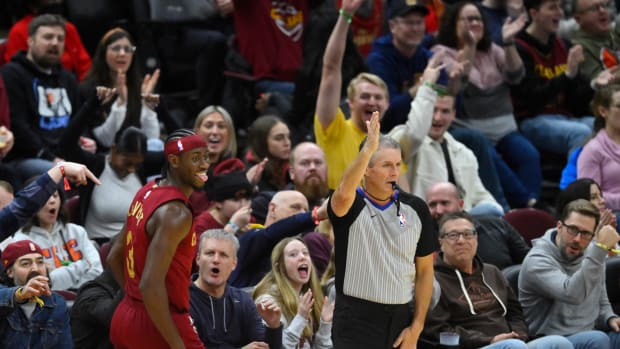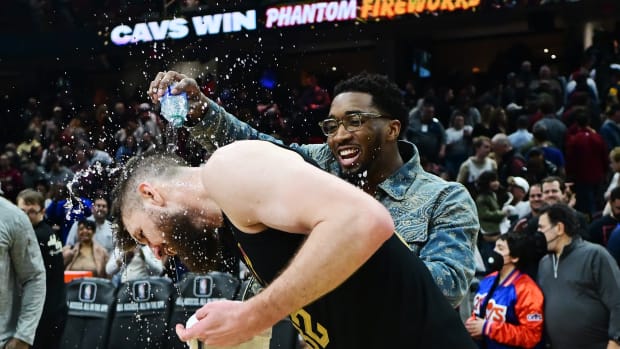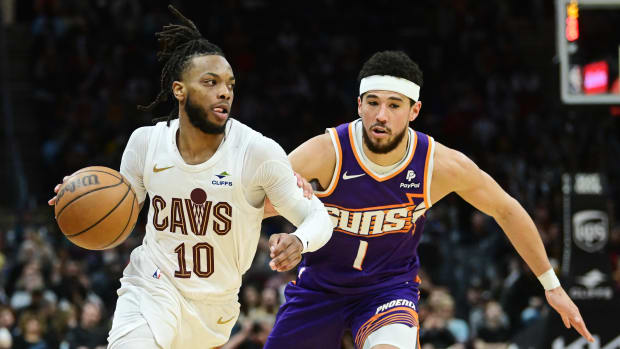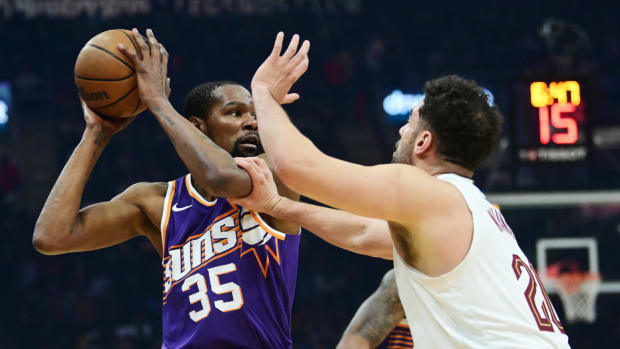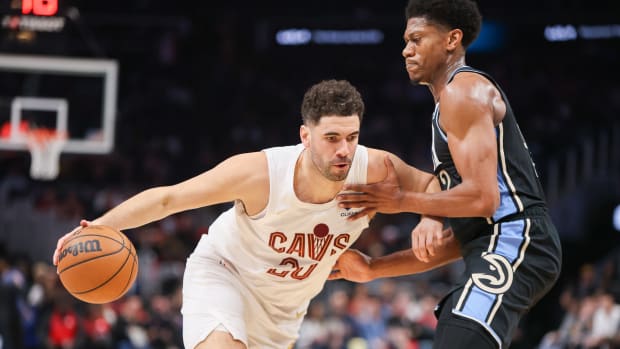Is Cook at point recipe for success for Warriors?
Stephen Curry leaped with his right arm in the air and left arm by his side, wincing as he chased down Eric Bledsoe and Giannis Antetokounmpo in a 2-on-1 fast break.
Hours later, the five-time All-Star, two-time MVP and three-time NBA champion found himself on the mend for the foreseeable future.
But what exactly are the ramifications for such an unpleasant sight in the San Francisco Bay Area?
Part of what makes the Golden State Warriors the juggernaut of the NBA is the layers of depth they have throughout their roster. In 2014-15, it was Andre Iguodala who split time between the starting lineup and bench en route to earning NBA Finals MVP. In 2016-17, it was Patrick McCaw who took on an elevated role in place of the injured Kevin Durant (knee) during the last month of the regular season and two games in the Western Conference first round. In 2017-18, Kevon Looney earned close to 20 minutes of playing time down the stretch with Zaza Pachulia no longer being a force.
And then there is Quinn Cook, the three-year journeyman who pinballed from Cleveland to New Orleans to Dallas back to New Orleans to Atlanta before finding a home in Golden State on a two-way contract. He eventually inked a two-year, $1.559 million deal with the Warriors on April 10, 2018.
Curry will reportedly miss at least the next four games, news that all but guarantees a sizeable workload for Cook in the rotation. In a small sample size of 13 games (three starts), he is having the best campaign of his career -- averaging 9.6 points, 1.9 assists and 1.9 rebounds on 51.1 percent shooting from the field and 48.8 percent shooting from beyond the perimeter.
Cook is no Curry, but the point-guard pair is closer than you might think when it comes to their production over 36 minutes and per 100 possessions…
Stephen Curry career 36-minute averages: 24.3 points, 7.1 assists, 4.6 rebounds (47.8 percent shooting, 43.8 percent three-point shooting).
Quinn Cook career 36-minute averages: 16.2 points, 4.4 assists, 3.6 rebounds (49.3 percent shooting, 45.0 percent three-point shooting).
Stephen Curry career points scored/points allowed per 100 possessions: 118 offensive rating, 106 defensive rating.
Quinn Cook career points scored/points allowed per 100 possessions: 114 offensive rating, 113 defensive rating.
Curry has a usage rate ranging from 21.4 percent (2009-10) to 31.3 percent (2015-16), while Cook has a usage rate ranging from 17.5 percent (2017-18) to 21.9 percent (2018-19). This disparity is a testament to Curry’s elite level and Cook’s developing level, but it still shows how Cook has made the most of his limited opportunities on a dynasty-caliber roster.
The Warriors do not need Cook to match the production of Curry, but they do need a 3-point threat who can fill a portion of the point guard void for the team’s next four games and beyond. Cook is a weaker defender than Curry, but teammates like Durant, Klay Thompson and Draymond Green have already established themselves atop the game’s rankings in that department.
Again, the layers of depth should allow Cook to thrive in his role as an outside shooter who takes care of the basketball and effectively picks and chooses his scoring opportunities each night.
